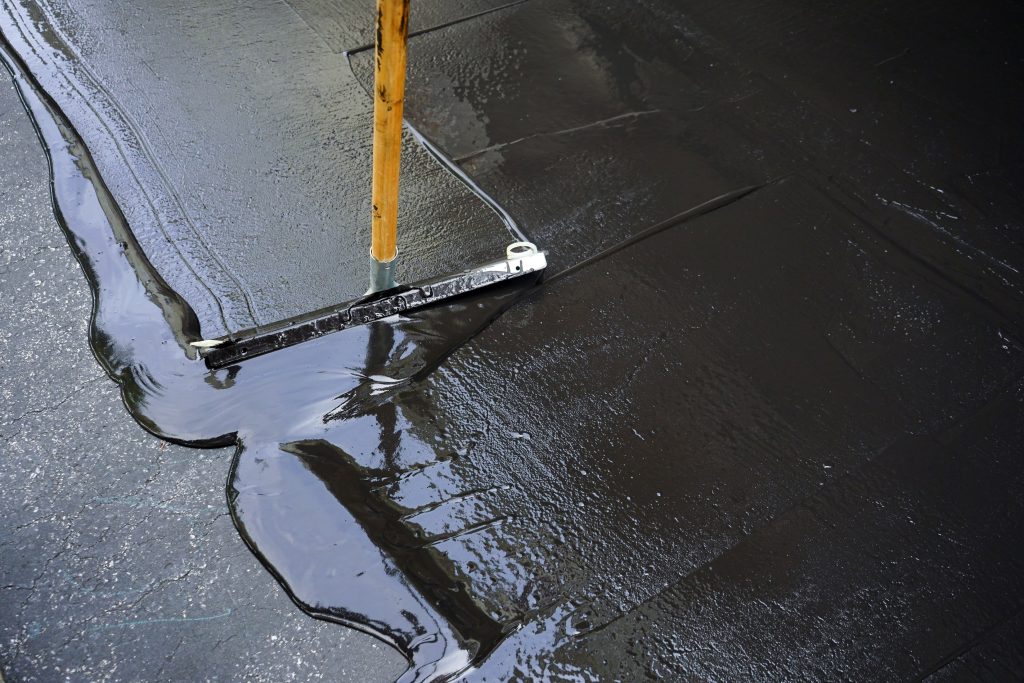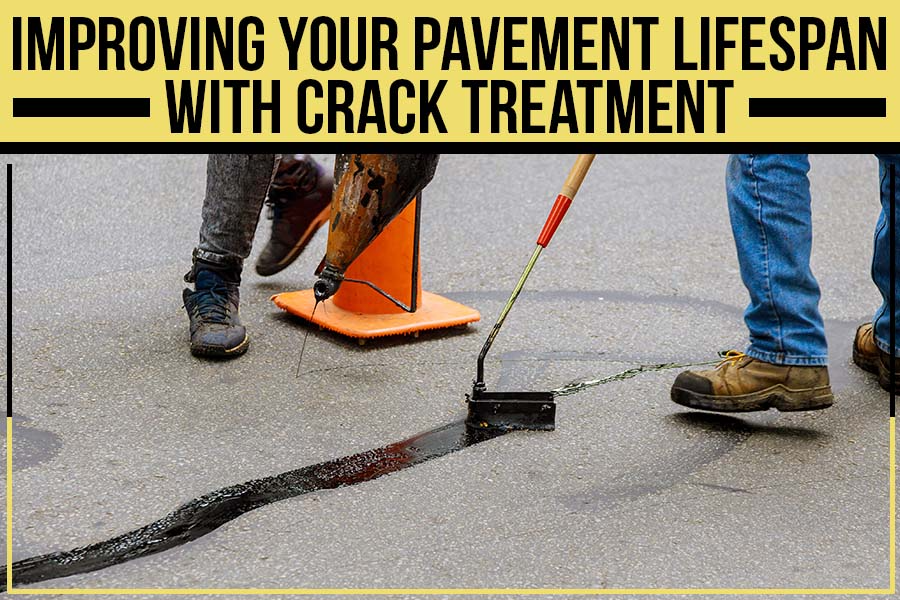Key Takeaways:
- Pavement may seem small, but it can make or break your property.
- Cracks are one of the most common problems that asphalt pavements face as they age.
- These cracks can cause further damage and impact the lifespan of your pavement if left untreated.
- Many types of cracks form on the pavement, including alligator cracks, edge cracking, longitudinal cracks, transverse cracks, block cracking, and rutting.
- Crack treatment is vital to keep your pavement in good condition and prevent further deterioration of the asphalt surface.
- Some common ways to treat asphalt cracks include crack filling, sealing, asphalt patching, seal coating, and asphalt overlays.
When it comes to our properties, we want to ensure that everything is perfect. We put much thought into the end design and want the landscaping and exterior to look great. But sometimes, we can forget about one of the most critical aspects – the pavement.
Pavement may seem small, but it can make or break your property. Think about it, a shoddy-looking driveway or parking lot can make a wrong impression on visitors or passersby. It could overall hurt your property value.
It is why being a property owner, you’re always looking for different ways to increase the lifespan of your pavement. While many factors go into determining how long your pavement will last, one key factor is crack treatment.
Treating cracks early on prevents them from growing and causing further damage to your pavement. Purcell’s Paving and Masonry discuss the benefits of crack treatment and how you can get started.
How Do Cracks Occur on Asphalt Pavement?
Asphalt driveways and parking lots are built to last. Proper maintenance can last for more than 15 years. However, cracks will eventually appear due to external forces like sun exposure, heavy traffic, and extreme weather conditions. Cracks are one of the most common problems that asphalt pavements face as they age.
Other than that, reports indicate that poor-quality materials and construction processes are among the most common causes of pavement cracking.
If you leave them untreated, these cracks can cause further damage and impact the lifespan of your pavement. Proper crack treatment is essential to avoid this type of situation.
What Types of Cracks Form on Asphalt Pavement?
The type of crack on a pavement surface depends mainly on environmental factors such as temperature fluctuations and moisture levels in the environment or from underneath the asphalt layer. Here are some of the types of cracks that form on the pavement:
1. Alligator Cracks
They form when large pavement sections become brittle and crack in a pattern of interconnected shapes resembling alligator skin.
2. Edge Cracking
These occur near the edges of the pavement surface and can be caused by poor drainage, lack of support at joints, and shrinkage due to temperature changes.
3. Longitudinal Cracks
These are parallel cracks that run along the direction of travel. They are generally caused by shrinkage during cooling after being laid or traffic loading on the pavement surface.
4. Transverse Crack
These are perpendicular cracks that form across the pavement’s surface and can be caused by reflective cracking from an underlying layer such as a base course layer or subgrade soils.
5. Block Cracking
These appear as interconnected cracks that form large rectangular shapes on the surface and are caused by asphalt shrinkage on the pavement due to insufficient thickness or aging.
6. Rutting
It is a type of deformation where wheel paths become indented in the pavement’s surface, which can be caused by traffic loading or inadequate compaction.
How Can You Treat Asphalt Pavement Cracks?
Crack treatment is essential to keep your pavement in good condition. The goal of crack treatment is to seal the cracks and prevent further deterioration of the asphalt surface. Here are some common ways that you can treat asphalt cracks:
1. Crack Filling
It involves filling the cracks with a specialized material to prevent water from getting into the pavement and causing further damage. The treatment can treat early-stage cracks that develop in the pavement.
Crack filling is generally less expensive and will involve a smaller initial investment. Still, over time it may need to be redone more often than other treatments. Therefore, crack filling is usually performed on cracks that aren’t moving and is considered to provide only temporary relief.
2. Crack Sealing
This procedure involves applying a liquid sealant to the cracks that will form a barrier and help prevent water from entering them.
Although crack sealing is a more expensive option for the pavement owner, it provides a longer life expectancy of 8 years and is therefore considered a permanent treatment. In contrast, fillings may only last one or two seasons before needing to be replaced.
3. Asphalt Patching
Depending on the depth of the crack, asphalt contractors can also recommend using asphalt patching.
The process focuses on replacing a specific pavement segment and filling it with a new layer of asphalt. Depending on the fix, you could use a cold mix patch for a temporary fix, while for a permanent fix, choose a hot mix patch.

4. Seal Coating
This process is done by applying a protective coating over the pavement’s surface to protect it from ultraviolet rays, oil spills, and moisture infiltration.
The seal coat is more of a preventative measure that you could implement after repairing the asphalt pavement. Seal coat your parking lot or driveway every three years to improve its lifespan.
5. Asphalt Overlays
An overlay is when additional layers of asphalt are added to the existing surface and then compacted with a roller.
With a new layer of asphalt, you can ensure that your pavement is strong, durable, and will last for many years.
Also Read: 8 Critical Factors To Consider When Installing An Asphalt Driveway
Conclusion
Crack treatment is a great way to improve the lifespan of your pavement.
By understanding and addressing the different types of cracks that can form on an asphalt surface, you can protect your investment and keep it looking new for years to come.
Rely on Purcell’s Paving and Masonry in New Providence, NJ!
Cracks can be a hassle and can occur on any asphalt pavement. If you’re searching for a reliable and experienced asphalt contractor to assist with crack treatment, turn to Purcell’s Paving & Masonry in New Providence, NJ!
From repairs to new installation, we are your one-stop shop for all things asphalt. We will take care of any repair problems you have and help design a driveway that installation meets all of your needs.
Contact us and get a free estimate today.
Posted in Purcell’s Paving And Masonry Blog | Comments Off

